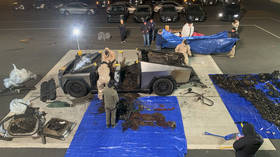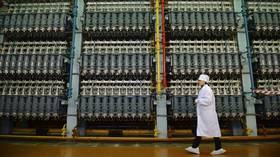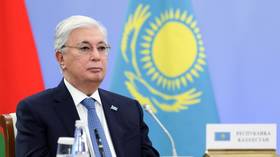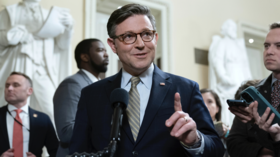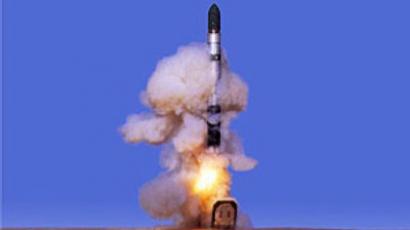ROAR: “New START will be more favorable to Russia’s interests”

Moscow and Washington will not sign a new START treaty this week as some problems are still to be negotiated.
Many expected Obama and Medvedev to sign the agreement this week. However, White House Spokesman Robert Gibbs said on December 15 that the US administration “has no current plans to sign a landmark nuclear arms reduction pact with Russia in Copenhagen.”
The two countries have promised to sign the agreement by the end of the year. The previous Strategic Arms Reduction Treaty (START 1) expired on December 5. “For the first time over the last 37 years, Moscow and Washington have remained without a judicial act limiting their nuclear potentials,” Kommersant daily said.
“It seems that the White House has decided not to be in a hurry and not to mix climatic problems with disarmament issues,” Rossiyskaya Gazeta daily said. “Experts have agreed on most details, but some small touches still remain, and the presidents of Russia and the US should discuss them during their personal meting,” the paper said.
“It is the heads of state who will announce to the world about the end of the work on the document,” it added. “It is possible that the concrete date and the place of the signing of it will be agreed in Copenhagen,” the paper noted.
Yevgeny Myasnikov, the leading researcher at the Center for Disarmament, Energy and Ecology Studies, believes that the pause after December 5 is not “frightening.” It is important what conditions the new treaty will contain.
“However, the danger of joint notifications and inspections that worked until recently will now stop working,” he told Rosbalt news agency. “Suspicions will appear immediately, and it is not ruled out that they will turn into inadequate reaction of one of the sides,” he said.
Some analysts believe that the issues of the control over mobile ground-based missile systems and the limitation of a number of delivery vehicles may become a stumbling block, the agency said.
But Aleksey Arbatov, head of the Center of International Security at the Institute of World Economy and International Relations, believes that the main problem is inspections of both sides.
“The US wants to continue inspections of the plant in Votkinsk where missiles Topol-M, Iskander and Bulava are produced, and Russia’s position is that it is unnecessary to inspect the plant itself, and the places where ballistic missiles are based are enough,” Arbatov told Rosbalt.
“It is not a tragedy if the new treaty is not signed by December 5,” he added. “But it will be a heavy blow if the new treaty is not signed by May next year,” he said.
The 2010 Nuclear Non-Proliferation Treaty Review Conference is due to take place in New York in May. “All nuclear states are awaiting this treaty that has been promised to them,” Arbatov said.
Aleksandr Konovalov, president of the Institute for Strategic Assessment and Analysis, believes that the timing of the new agreement is not so important, “more important is to think over all the clauses of it.” The ideal outcome would be to prolong the old agreement, he noted. The Russian Foreign Ministry earlier said the prolongation could be one of the options.
At the same time, “the Russian military are hampering the prolongation of the START 1 because this treaty bans the deployment of new ballistic ground-based missiles with a separating warhead,” Konovalov told Gazeta daily. They want to replace some old missiles with new ones by the end of the year, he said.
Russia will still replace the old missiles “in any case,” Konovalov said, stressing that Moscow “needs this treaty because we will have a colossal disparity with Americans. And if the presidents ordered to work out the text, I think that in the end it will be written.”
“It is possible to live for two months without a treaty,” Konovalov noted. "The main thing is not to take decisions that contradict the essence of the agreement.”
“The new agreement is expected to be “more equitable to the interests of Russia than the previous one,” Moskovsky Komsomolets daily said. Most analysts believe that the START 1 “was not favorable for Russia and reflected the weakness of the country in the 1990s,” the paper noted. Moscow “had to agree to unfavorable conditions proposed by the Americans,” the daily added.
“Now the situation has changed, and many things in the START 1 are not acceptable for us, and first of all the draconian measures of control,” the paper said. The new version of the agreement does not provide for the possibility of around-the-clock American inspections at a Russian plant in the Republic of Udmurtia, according to the paper’s sources.
In addition, telemetric data on test launches of Russia’s missiles will not be transferred to the American side, the paper said. This demand was “absurd,” the paper said. “We ourselves provided the US with exact details of a missile’s flight,” it said, adding that “Americans could use the data for their missile defense.”
The future agreement will not influence Russia’s plans “to modernize its nuclear potential,” the paper said. “It will not limit the deployment of a new RS-24 system with a separating warhead and will not derail plans on the creation of a new heavy missile,” the paper said.
Despite “a serious victory for Russia in the dialogue on strategic arms,” Moscow had to make some compromises, taking into account “a number of political factors,” the paper said.
The US may retain the ability to increase the number of warheads on deployed delivery vehicles, the daily said, adding that it is not clear if this potential will be limited somehow, it added.
The new document may also leave 700-750 delivery vehicles for each side, the paper’s sources added. These are “not good figures” for Russia, the paper said, because Moscow will have “to increase rather than decrease the production of delivery vehicles” taking into account the need to replace old ones.
In this sense, “it is possible that the new START treaty will become not a plan of disarmament for Russia, but the beginning of a new arms race,” the daily said, wondering if the country’s economy will endure it.
Sergey Borisov, RT




